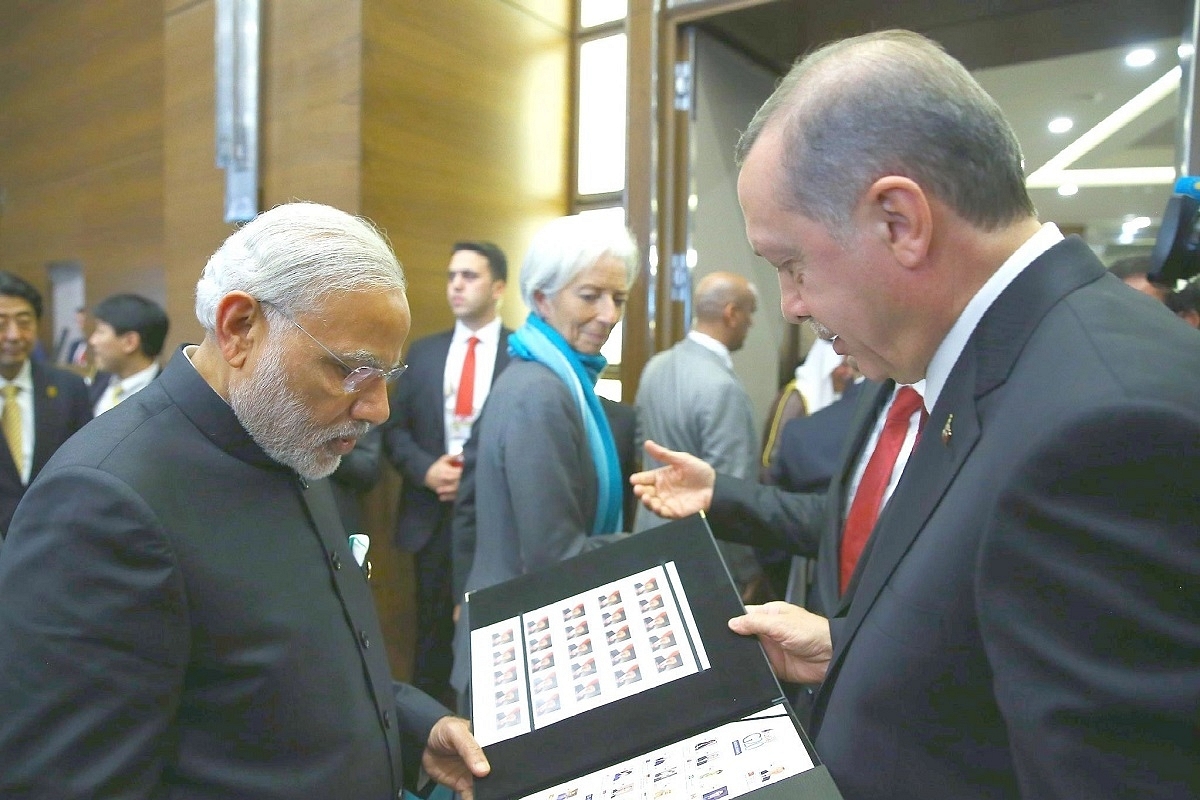World
Turkey's Erdogan Tones Down Rhetoric On Kashmir At UN Days After Meeting With Modi; Skips Mention Of UN Resolutions, Article 370
- Erdogan mentioned Kashmir but did not take the usual line, which is seen as furthering Pakistan's agenda on the issue.

Prime Minister Modi and President Erdogan.
Turkish President Recep Tayyip Erdogan appears to be toning down his rhetoric on Kashmir just days after his meeting with Prime Minister Narendra Modi on the sidelines of the Shanghai Cooperation Council Summit at Samarkand earlier this month.
Speaking at the United Nations General Assembly (UNGA), Erdogan mentioned Kashmir but did not take the usual line, which is seen as furthering Pakistan's agenda on the issue. Instead, the Turkish President called for "permanent peace" in the region.
"India and Pakistan, after having established their sovereignty and independence 75 years ago, they still haven't established peace and solidarity between one another. This is much unfortunate. We hope and pray that a fair and permanent peace and prosperity will be established in Kashmir," Erdogan was quoted by agencies as saying.
This is a departure from the past, when Erdogan's stand on Kashmir at the United Nations was close to Pakistan's position.
In 2019, for instance, he mischaracterised the situation in Kashmir as a "blockade". He said Kashmiris are "virtually under blockade with 8 million people, unfortunately, unable to step outside of Kashmir."
Pakistan government's official Twitter account then shared the comment of the Turkish leader and thanked him for "forcefully raising the issue of occupied Kashmir". The then prime minister of Pakistan, Imran Khan, had also thanked Erdogan for "a very principled stance".
Khan again thanked Erdogan for "Turkey's unwavering support... for the Kashmiris in their legitimate struggle for self-determination".
The change in Erdogan's rhetoric on Kashmir comes at a time when Islamabad finds itself in a deep economic crisis.
Interestingly, External Affairs Minister S Jaishankar discussed the Cyprus issue with Turkey's Minister of Foreign Affairs Mevlut Cavusoglu just hours after Erdogan raked up Kashmir in his address to the UNGA.
The long ongoing problem in Cyprus began in 1974 when Turkey invaded the northern part of the country in response to a military coup on the island which was backed by the Greek government.
Much to Turkey's chagrin, India has been advocating a peaceful resolution of the issue in accordance with the UN resolutions.
Introducing ElectionsHQ + 50 Ground Reports Project
The 2024 elections might seem easy to guess, but there are some important questions that shouldn't be missed.
Do freebies still sway voters? Do people prioritise infrastructure when voting? How will Punjab vote?
The answers to these questions provide great insights into where we, as a country, are headed in the years to come.
Swarajya is starting a project with an aim to do 50 solid ground stories and a smart commentary service on WhatsApp, a one-of-a-kind. We'd love your support during this election season.
Click below to contribute.
Latest